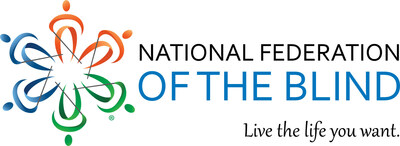Court's action supports the rights of individuals working in non-integrated work environments are protected, including minimum wage
COLUMBUS, Ohio, January 12th, 2024 /PRNewswire-PRWeb/ -- In a ruling handed down last week by the United States District Court for the Northern District of Ohio (Seneca Re-Ad Industries, Inc. v. Secretary of the Department of Labor et al., 3:20-cv-02325-JJH), the Court upheld a 2016 decision from the United States Department of Labor that found three individuals employed by Seneca Re-Ad Industries, Inc. are not disabled for the work they perform and cannot be paid less than minimum wage. The Court affirmed the Department's award of back pay and liquidated damages to Pamela Steward, Ralph "Joe" Magers, and Mark Felton. Ms. Steward, Mr. Magers, and Mr. Felton were represented by attorneys from and , LLP.
Seneca Re-Ad Industries, Inc. operates a sheltered workshop in Seneca County, Ohio that is overseen by the Seneca County Board of Developmental Disabilities and that performs work for Roppe Corporation, an international flooring company.
"This court action is a clear victory for those working to reverse subminimum wage, and affirms our belief that having a disability does not make one unworthy of fair pay," said Kerstin Sjoberg, DRO executive director.
In November 2015, with the support of the , Ms. Steward, Mr. Magers, and Mr. Felton filed a petition with the Department of Labor challenging their receipt of subminimum wages. In a precedent-setting decision, the Department of Labor explained that employers cannot rely on a provision in the Fair Labor Standards Act that allows individuals with disabilities to be paid less than the minimum wage without clear evidence that an individual's disability impacts his or her productivity.
"The National Federation of the Blind has fought the payment of subminimum wages to the blind and other workers with disabilities since our founding," said Mark Riccobono, President of the National Federation of the Blind. "Now, after nearly a decade of litigation, a federal court has affirmed, for the first time, that disability by itself cannot be used to demonstrate lower productivity even under the terms of Section 14(c) of the Fair Labor Standards Act. This ruling points to the truth that we have always known: the subminimum wage exemption is simply a manifestation of society's low expectations and false assumptions regarding the capacity of workers with disabilities. We applaud the court for recognizing this truth as it applies to the courageous workers who took their case to the Department of Labor, but we will not rest until no blind or disabled worker can be victimized by this antiquated, discriminatory, and immoral practice."
In addition to affirming that decision, the Court rejected Seneca Re-Ad's argument that the Administrative Law Judge who ruled on Ms. Steward's, Mr. Magers's, and Mr. Felton's petition was not properly appointed under the U.S. Constitution.
"Eight years ago, a Department of Labor Administrative Law Judge affirmed what Pamela Steward, Joe Magers, and Mark Felton have known all along: that they are not disabled for the work they perform at Seneca Re-Ad, and that they cannot be paid less than the minimum wage," said Kevin Docherty, a partner at Brown, Goldstein & Levy. "The Court's ruling, upholding the Department of Labor's landmark decision, is an important step forward in the fight to curtail payment of subminimum wages to individuals with disabilities."
About Disability Rights Ohio
Disability Rights Ohio is the federally and state designated Protection and Advocacy System and Client Assistance Program for the state of Ohio. The mission of Disability Rights Ohio is to advocate for the human, civil and legal rights of people with disabilities in Ohio. Disability Rights Ohio provides legal advocacy and rights protection to a wide range of people with disabilities. Find more information at . Follow Disability Rights Ohio on and .
About the National Federation of the Blind
The National Federation of the Blind (NFB), headquartered in Baltimore, defends the rights of blind people of all ages and provides information and support to families with blind children, older Americans who are losing vision, and more. Founded in 1940, the NFB is the transformative membership and advocacy organization of blind Americans with affiliates, chapters, and divisions in the fifty states, Washington DC, and Puerto Rico. We believe in the hopes and dreams of blind people and work together to transform them into reality. Learn more about our many programs and initiatives at.
Media Contact
Liz Lane, Team Fleisher Communications, 1 6145586666, [email protected],
SOURCE Disability Rights Ohio



Share this article